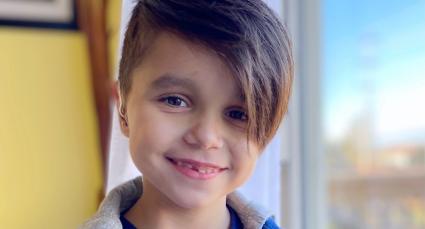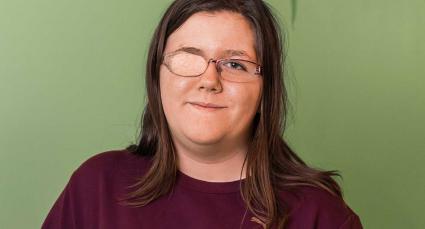For many Maritime children, the IWK will fortunately be a place they’ll only ever know by name. However, for many others, it can become an integral part of their lives, marked by frequent visits, medical procedures, tests, and treatments.
That is the difficult reality for 16-year-old Peter, who has been going to the IWK since he was three years old. It was then that an MRI showed he had a brain tumour caused by neurofibromatosis (NF), a rare genetic condition he lives with every day.
NF causes tumours (groups of abnormal cells) to form throughout the body. Unfortunately, there is not yet a cure, and the condition can cause many serious complications, such as hearing and vision loss, chronic pain, trouble learning, and a higher risk of developing cancer.
Because of the tumour’s location on Peter’s brain, it was too risky to remove it surgically. All his care team could do was to monitor it every six months with an MRI and hope that it wouldn’t grow.
Fortunately, for many years, the tumour remained unchanged. And in 2017, Peter’s mother, Elaine, received some incredible news—his tumour had completely disappeared. But unfortunately, the joy of hearing that positive news quickly disappeared, too, because Peter’s care team had discovered a new tumour in his brainstem.
This new tumour was actively growing and also too risky to remove by surgery. “There was concern removing the tumour by surgery might end his life or cause him to stop being able to breathe on his own,” shares Elaine.
For Peter, the only option was chemotherapy, which he started immediately and would receive for the next six years. During this time, he tried many different chemotherapy treatments with the hope that one would stop the tumour from growing.
But to Elaine and Peter’s heartbreak, the tumour continued to grow, putting his health at serious risk. They were running out of treatment options, and they needed to act quickly. Peter's tumour was pressing against his cerebral aqueduct (a narrow tube in the brain that allows cerebrospinal fluid to flow). He was developing hydrocephalus. If left untreated, it could cause a buildup of fluid in his brain and be fatal.
In December 2023, Peter underwent an endoscopic third ventriculostomy, a lifesaving neurosurgical procedure to redirect his cerebrospinal fluid. This would prevent the buildup of fluid in his brain. At this time, his IWK care team also did a biopsy on his tumour and sent samples for testing through a research project called PROFYLE (short for PRecision Oncology For Young peopLE).
PROFYLE is a vital project for children and youth with a tumour who have been told they are out of treatment options. The goal of the project is to learn more about each patient's tumour and find treatment options tailored to their specific needs. For many children and families, PROFYLE gives them renewed hope at a time when they need it most.
Fortunately, and remarkably, PROFYLE researchers discovered a targeted treatment option for Peter’s tumour. And in November 2024, an MRI showed that Peter’s tumour shrunk—for the first time since it was discovered in 2017. When Elaine heard the news, she felt disbelief. “I felt like maybe I was dreaming this,” shares Elaine. “We’re hoping his next MRI shows that the tumour has shrunk further.”
For Elaine and Peter, having a new treatment option that is working is life-changing. “There's so much more hope now than there ever was, and it's because of programs like PROFYLE,” says Elaine. “It's helping and every day they're coming up with new treatments, new options,” she adds.
Peter will continue to have periodic MRIs and will be closely followed by the IWK. And thanks to PROFYLE, Elaine has hope that Peter will go on to live a healthy life—one with fewer hospital visits, medical procedures, tests and treatments.
To learn more about PROFYLE, please visit www.iwkfoundation.org/profyle.



